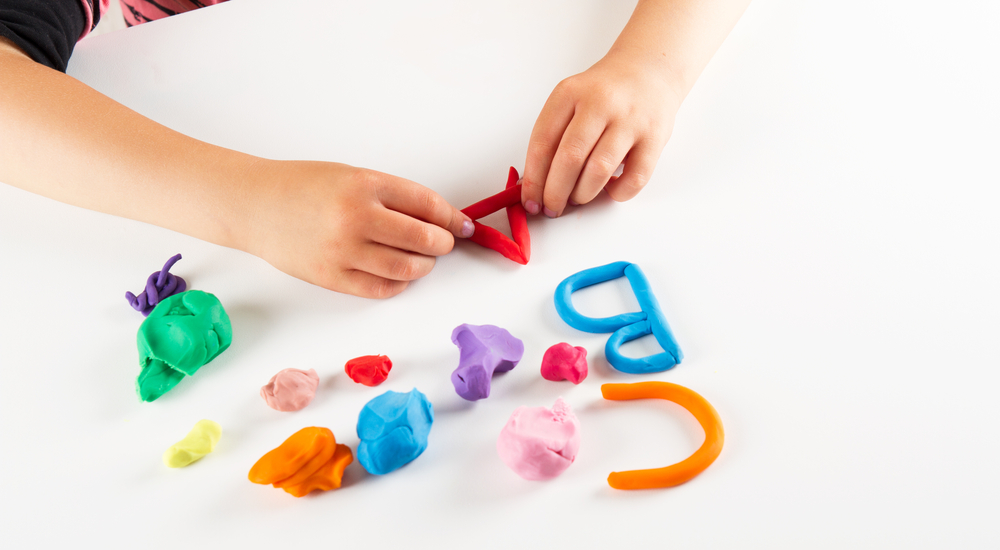Division practice Worksheets for Ages 5-8
14 filtered results
-
From - To
Discover our collection of Division Practice Worksheets for Ages 5-8, designed to make learning division engaging and enjoyable for young learners. Our worksheets are filled with fun and interactive activities tailored to develop essential math skills while building a strong foundation in division concepts. With a variety of exercises ranging from simple division problems to more challenging tasks, these worksheets are perfect for children in early grades. Help your child improve their division abilities, boost their confidence, and foster a love for mathematics with our carefully crafted resources. Visit our page to explore and download now!
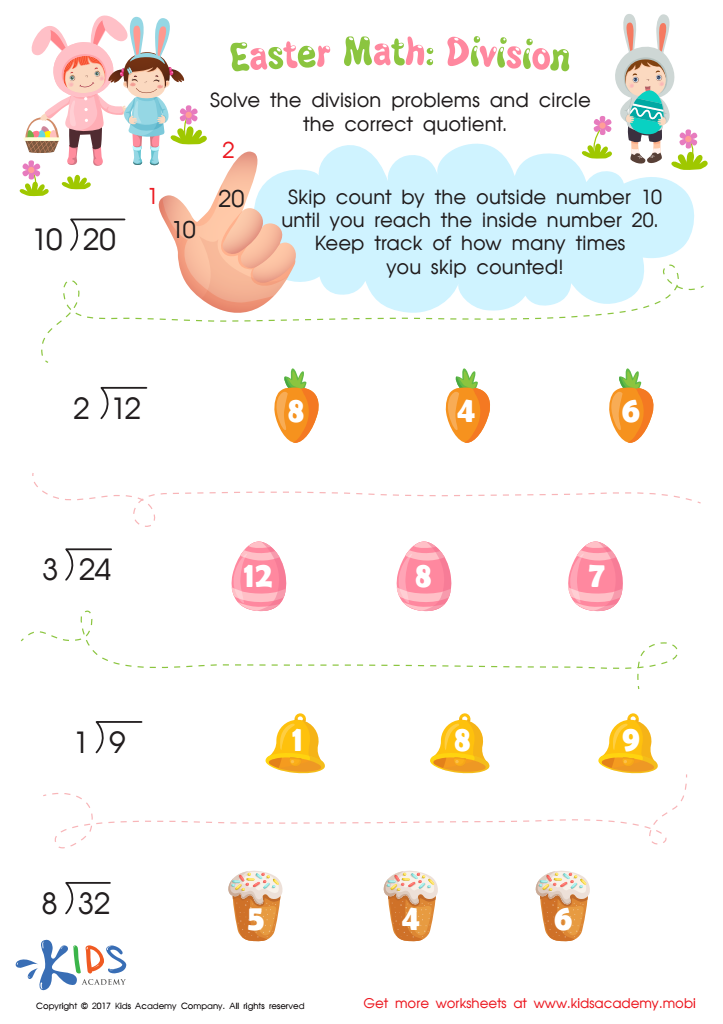

Division Worksheet
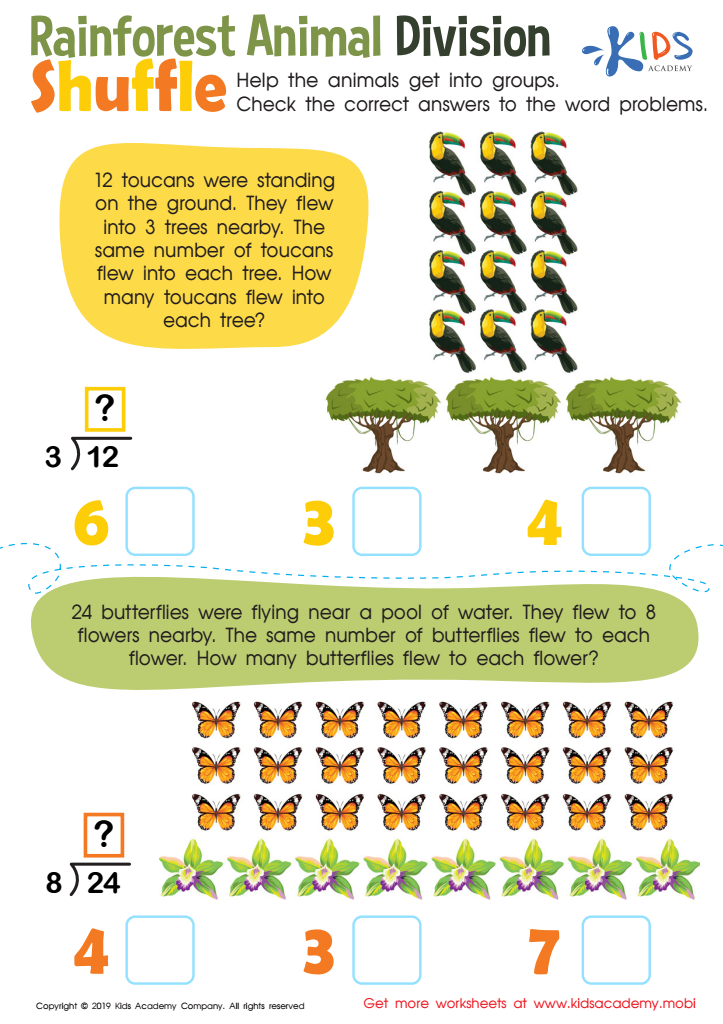

Rainforest Animal Division Worksheet


Enrichment -2 Step Word Problems Worksheet
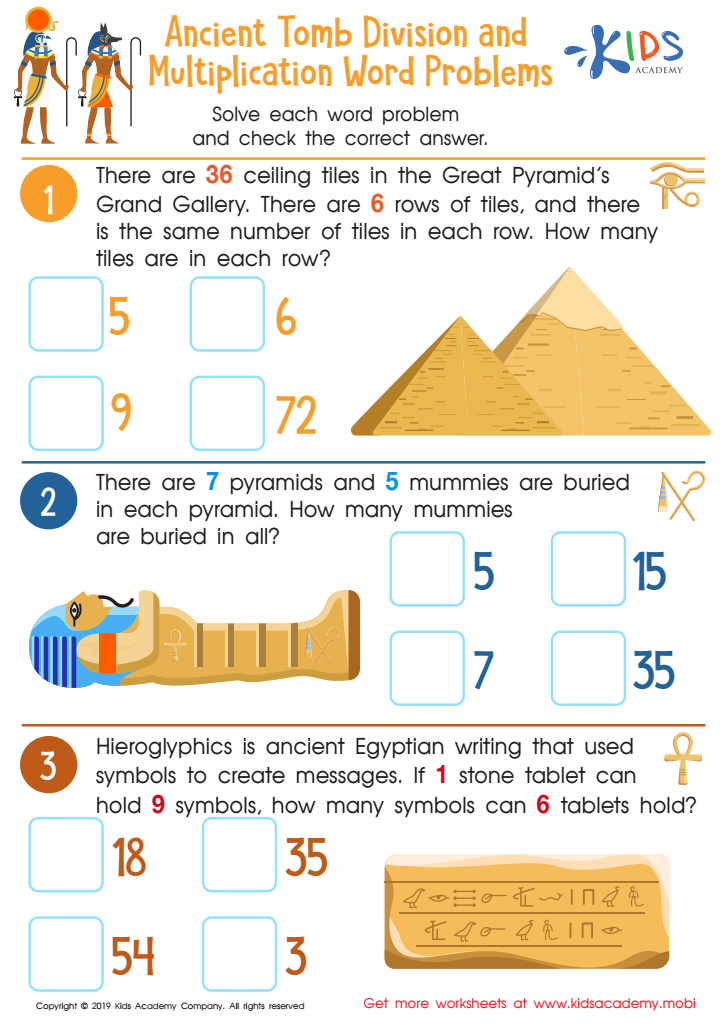

Ancient Tomb Division and Multiplication Word Problems Worksheet
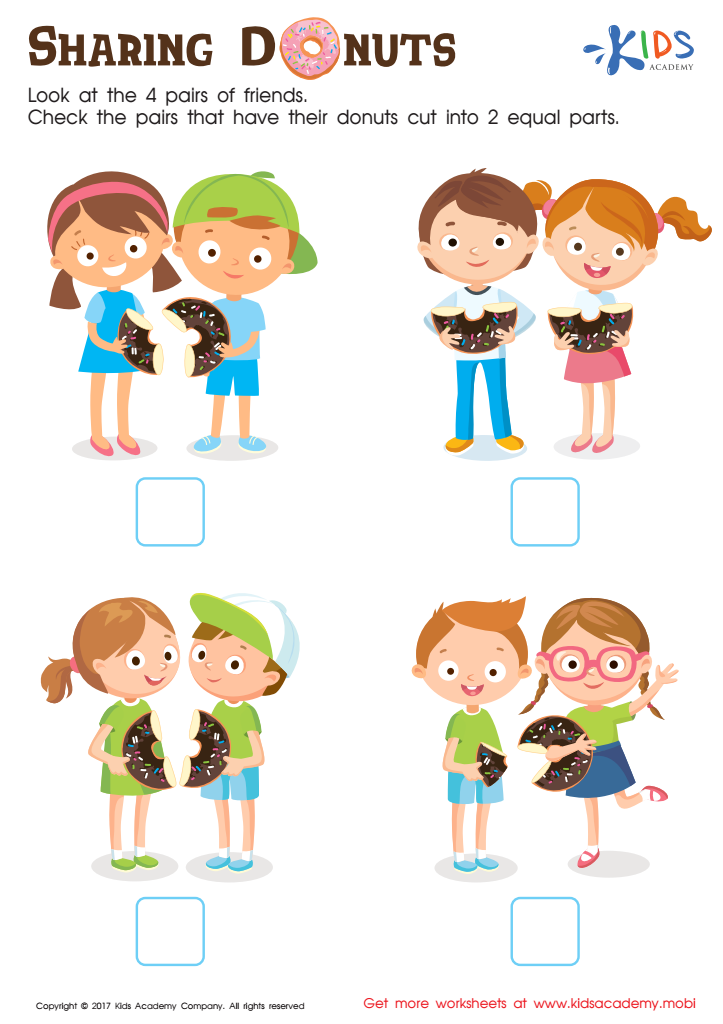

Sharing Donuts Worksheet
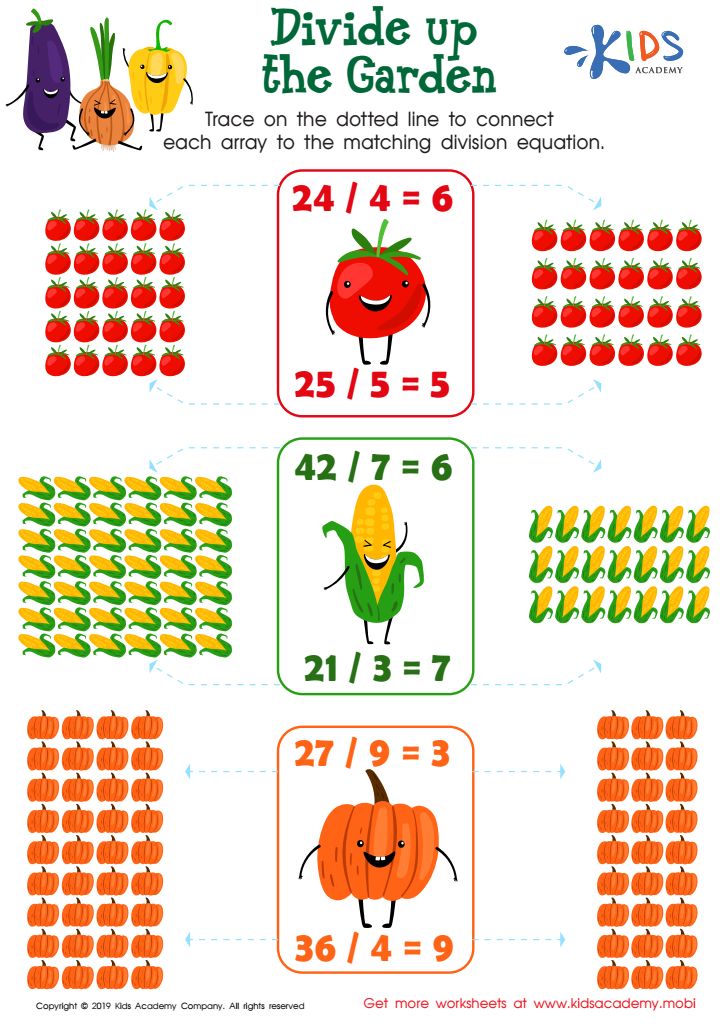

Divide up the Garden Worksheet
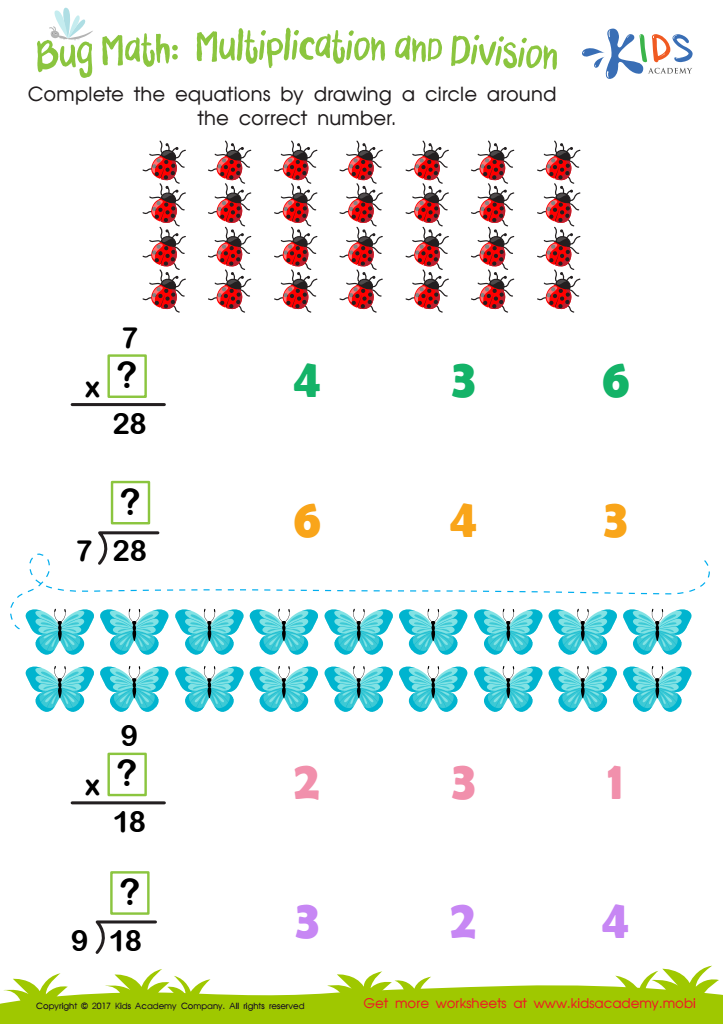

Multiplication and Division Worksheet
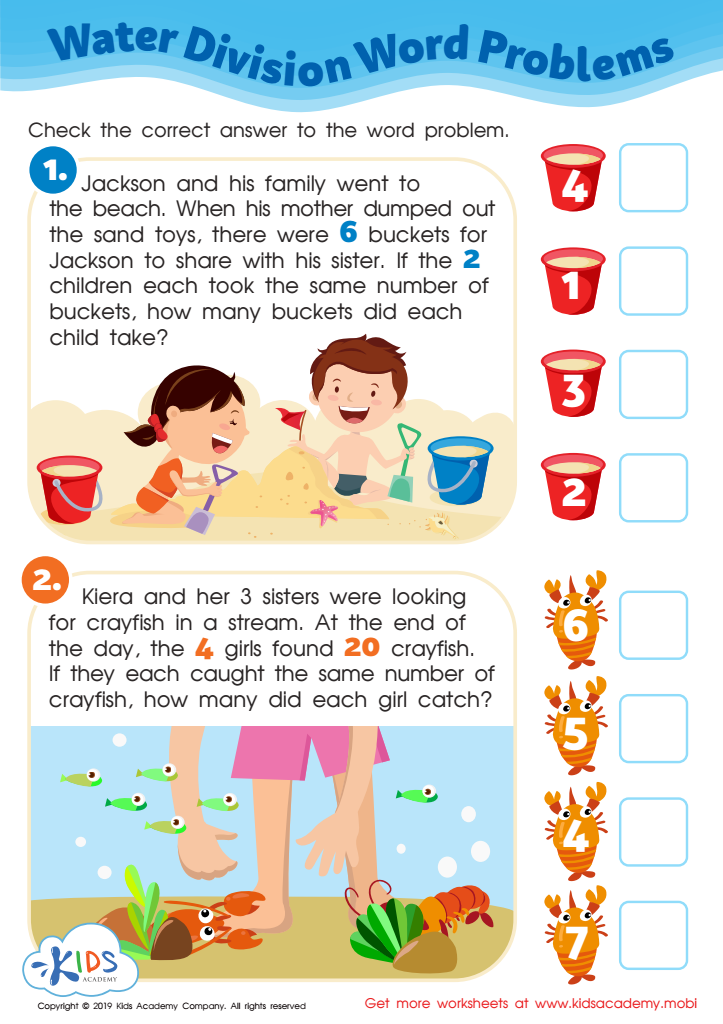

Water Division Word Problems Worksheet
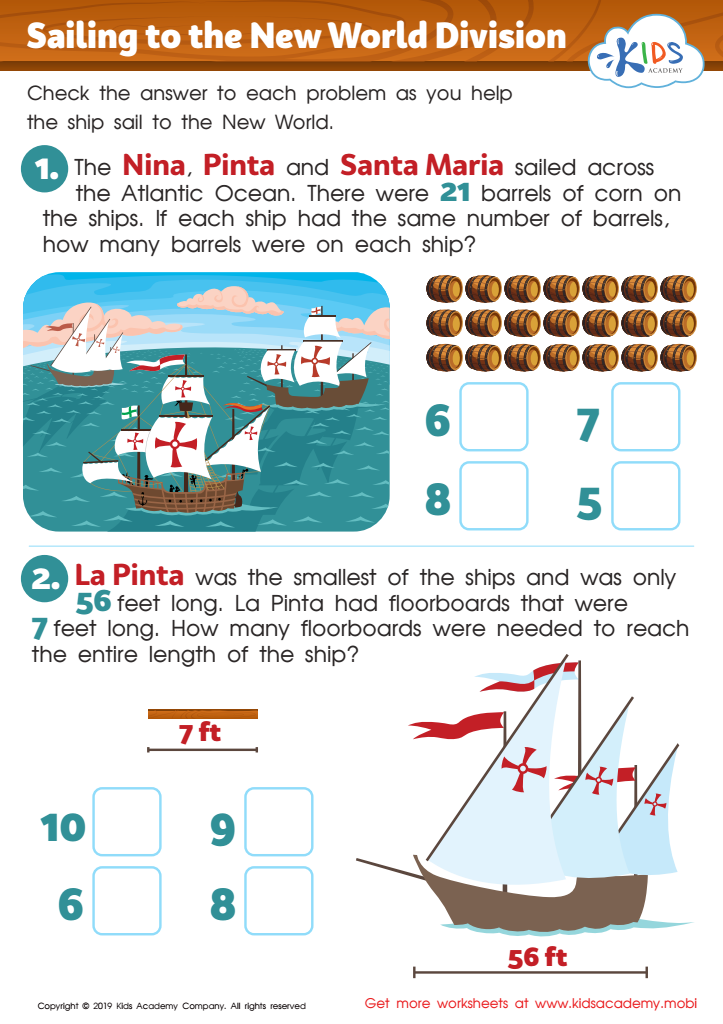

Sailing to the New World Division Worksheet
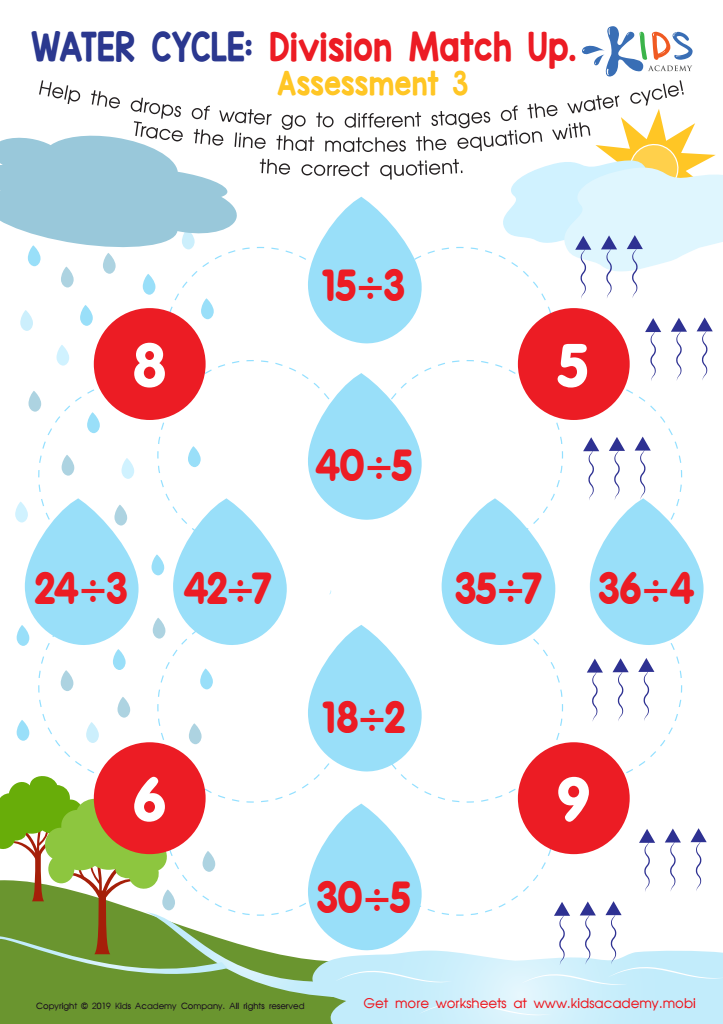

Water Cycle Division Match Up Assessment 3 Worksheet
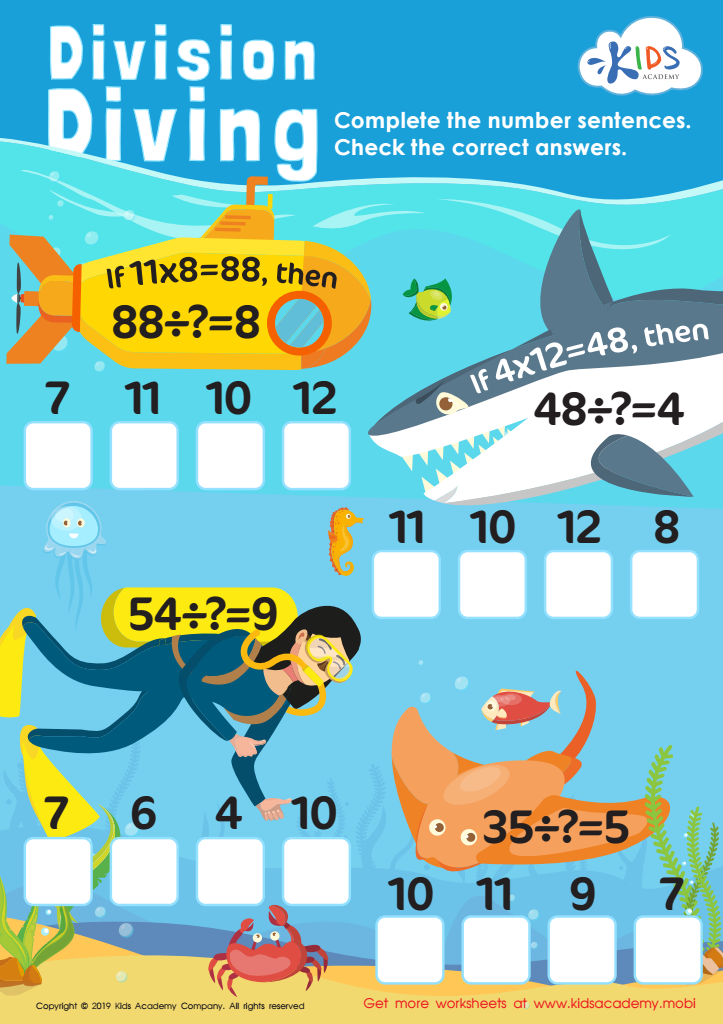

Division Diving Worksheet
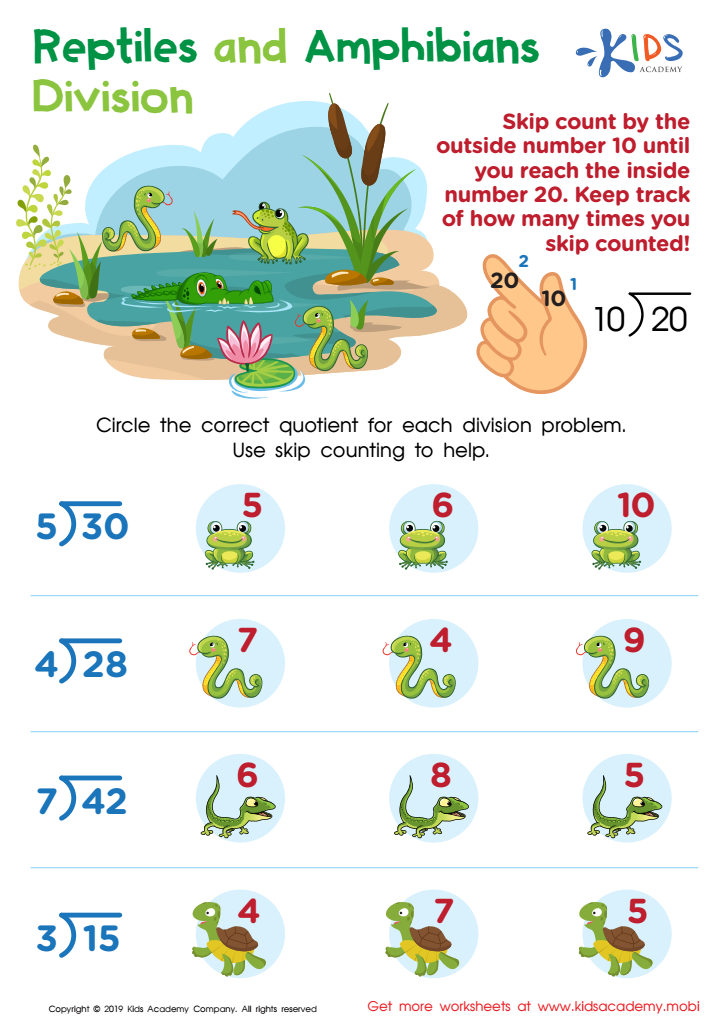

Reptile and Amphibians Division Worksheet
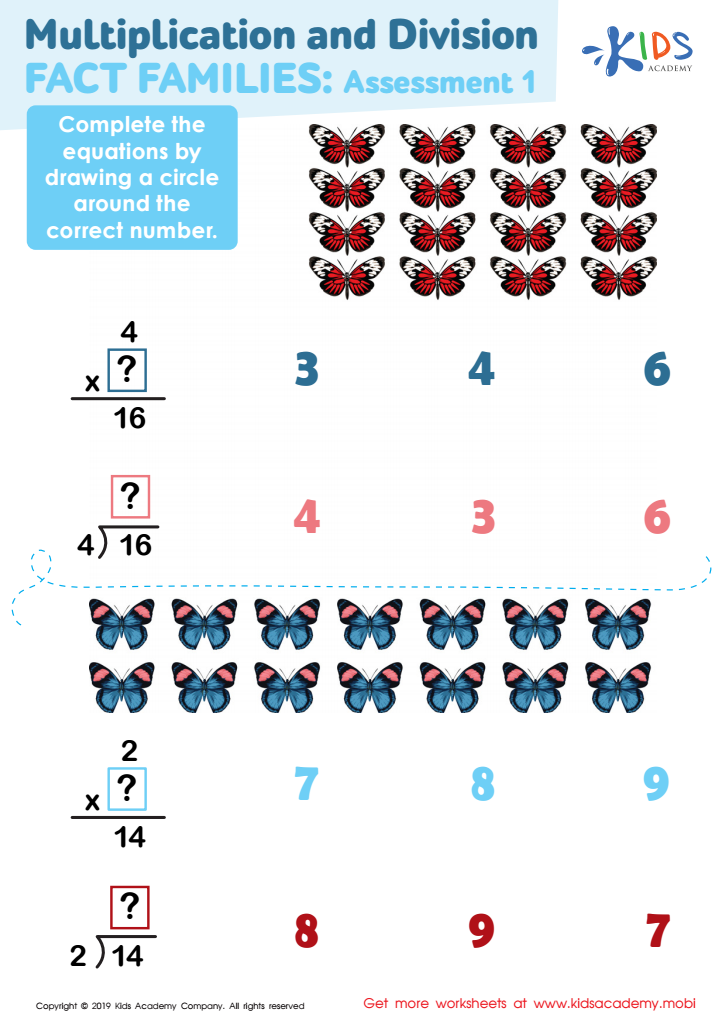

Multiplication and Division Fact Families Assessment 1 Worksheet
Teaching division to children aged 5-8 is crucial as it forms the foundation for more advanced mathematical concepts. At this young age, children are rapidly developing their cognitive abilities, and introducing division helps cultivate critical thinking and problem-solving skills. By practicing division, children learn to understand the relationship between numbers and how they can be grouped, shared, and separated—an essential aspect of arithmetic reasoning.
Moreover, division practice enhances a child's numeracy, which is fundamental for their overall academic success. Early exposure to division facilitates a smoother transition to more complex mathematical topics like fractions, ratios, and algebra, which they will encounter in later grades. This early mastery ensures that children are not intimidated by these subjects in the future, thus fostering a positive attitude towards mathematics.
Additionally, developing division skills at an early age encourages logical reasoning and persistence. Children start to recognize patterns, make predictions, and develop strategies for problem-solving—a skill set applicable beyond just mathematics, including daily life situations like sharing toys or dividing snacks.
Parents and teachers who actively engage children in division practice create a supportive learning environment where mathematical concepts are demystified. This involvement ensures that children develop confidence, competence, and a lasting interest in math, paving the way for academic and real-world success.
 Assign to My Students
Assign to My Students





